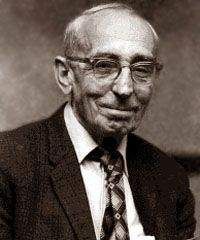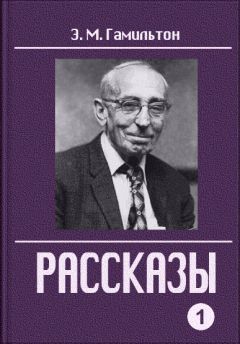Пользователь - o 3b3e7475144cf77c
cover. The waiter exhibited the magnificence before he put some on separate plates. Heinrich
had to be shown how to extract the hot pink body from the thin shell, and then dip it into a
dish of hot butter. Yes, they were good!
And what would Heinrich like to drink? Heinrich left that, too, to his host, so he had
Rheinwein, the color of a yellow diamond, and later he had sparkling champagne. Also he had
wild strawberries with Schlagsahne, and tiny cakes with varicolored icing. "Shall we have the
coffee in our suite?" said the heiress; they went upstairs, and on the way were observed by
many, and Heinrich's uniform with its special insignia indicating party rank left no doubt that
Mr. and Mrs. Irma Barnes were all right; the word would go through the hotel, and the
reporters would hear of it, and the social doings of the young couple would be featured in the
controlled press. The Nazis would not love them, of course; the Nazis were not sentimental.
But they were ready to see people climbing onto their bandwagon, and would let them ride so
far as suited the convenience of the bandwagon Führer.
VI
Up in the room they had coffee, also brandy in large but very thin goblets. Heinrich never felt
better in his life, and he talked for a couple of hours about the N.S.D.A.P. and the wonders it
had achieved and was going to achieve. Lanny listened intently, and explained his own position
in a frank way. Twelve years ago, when the forester's son had first made known Adi
Schicklgruber's movement, Lanny hadn't had the faintest idea that it could succeed, or even
attain importance. But he had watched it growing, step by step, and of course couldn't help
being impressed; now he had come to realize that it was what the German people wanted, and of
course they had every right in the world to have it. Lanny couldn't say that he was a convert,
but he was a student of the movement; he was eager to talk with the leaders and question
them, so that he could take back to the outside world a true and honest account of the changes
taking place in the Fatherland. "I know a great many journalists," he said, "and I may be able
to exert a little influence."
"Indeed I am sure you can," responded Heinrich cordially.
Lanny took a deep breath and said a little prayer. "There's just one trouble, Heinrich. You
know, of course, that my sister is married to a Jew."
"Yes. It's too bad!" responded the young official, gravely.
"It happens that he's a fine violinist; the best I know. Have you ever heard him?"
"Never."
"He played the Beethoven concerto in Paris a few weeks ago, and it was considered
extraordinary."
"I don't think I'd care to hear a Jew play Beethoven," replied Heinrich. His enthusiasm had
sustained a sudden chill.
"Here is my position," continued Lanny. "Hansi's father has been my father's business
associate for a long time."
"They tell me he was a Schieber."
"Maybe so. There were plenty of good German Schieber; the biggest of all was Stinnes.
There's an open market, and men buy and sell, and nobody knows whom he's buying from or
selling to. The point is, I have ties with the Robin family, and it makes it awkward for me."
"They ought to get out of the country, Lanny. Let them go to America, if you like them and
can get along with them."
"Exactly! That is what I've been urging them to do, and they wanted to do it. But
unfortunately Johannes has disappeared."
"Disappeared? How do you mean?"
"He was about to go on board his yacht in Bremerhaven when some Brownshirts seized him
and carried him off, and nobody has any idea where he is."
"But that's absurd, Lanny."
"I'm sure it doesn't seem absurd to my old friend."
"What has he been doing? He must have broken some law."
"I have no idea and I doubt very much if he has."
"How do you know about it, Lanny?"
"I telephoned to the yacht and a strange voice answered. The man said he was a
Reichsbetriebszellenabteilung Gruppenführerstellvertreter."
"That's a part of Dr. Ley's new Labor Front. What's he got to do with a Jewish Schieber?"
"You may do me a great favor if you'll find out for me, Heinrich."
"Well, you know what happens in revolutions. People take things into their own hands, and
regrettable incidents occur. The Führer can't know everything that's going on."
"I'm quite sure of it," said Lanny. "The moment I heard about it, I said: "I know exactly
where to go. Heinrich Jung is the person who will understand and help me. So here I am!"
VII
The young Nazi executive wasn't a fool, not even with the Rheinwein and the champagne and
the brandy. He perceived at once why he had been receiving all this hospitality. But then, he
had known Lanny Budd for some twelve years, and had had other meals at his expense and no
favors asked. It is injurious to one's vanity to have to suspect old friends, and Heinrich had a
naturally confiding disposition. So he asked: "What do you want me to do?"
"First, I want you to understand my position in this unhappy matter. I have many friends in
Germany, and I don't want to hurt them; but at the same time I can't let a member of my
family rot in a concentration camp without at least trying to find out what he's accused of. Can I,
Heinrich?"
"No, I suppose not," the other admitted, reluctantly.
"So far, there hasn't been any publicity that I have seen. Of course something may break loose
abroad; Johannes has friends and business associates there, and when they don't hear from
him they, too, may get busy on the telephone. If that happens, it will make a scandal, and I think
I'm doing a favor to you and to Kurt and to Seine Hochgeboren and even to the Führer, when I
come and let you know the situation. The first person I meet in Berlin is likely to ask me:
'Where is Johannes?' And what am I to say? Since he is my sister's father-in-law and my
father's associate, I'd be bound to call at his home, or at least telephone and let him know of my
arrival."
"It's certainly awkward," conceded Heinrich.
"Another thing: when Seine Hochgeboren gets my letter in the morning he may call up. He's a
friend of Johannes—in fact, it was at Johannes's palace that I first met him. Also, Irma expects
to meet the Fürstin Bismarck tomorrow—perhaps you know her, a very charming Swedish lady.
What is she going to say about the matter?"
Heinrich admitted that it was verteufelt; and Lanny went on: "If I tell these people what has
happened, I am in the position of having come here to attack the Regierung; and that's the last
thing I want to do. But the story can't be kept down indefinitely, and it's going to make a
frightful stink. So I said to Irma: 'Let's get to Heinrich quickly, and have the thing stopped
before it gets started.' Johannes is absolutely a non-political person, and he has no interest in
spreading scandals. I'm sure he'll gladly agree to shut up and forget that it happened."
"But the man must have done something, Lanny! They don't just grab people in Germany
and drag them to jail for nothing."
"Not even Jews, Heinrich?"
"Not even Jews. You saw how orderly the boycott was. Or did the foreign press lie to you
about it?"
"I have heard terrible stories; but I have refused to believe them and I don't want to have to. I
want to be able to go out and tell my friends that as soon as I reported this case to the Nazi
authorities, the trouble was corrected. I offer you a chance to distinguish yourself, Heinrich,
because your superiors will be grateful to you for helping to avoid a scandal in the outside
world."
VIII
This conversation was being carried on in German, because Heinrich's English was
inadequate. Irma's German was even poorer, but she had the advantage of having been told
Lanny's plan of campaign, and she could follow its progress on the young official's face. A well-
chiseled Nordic face, with two sky-blue eyes looking earnestly out, and a crown of straw-
colored hair shaved so that a Pickelhaube might fit over it—though Heinrich had never worn
that decoration. The face had been pink with pleasure at the evening's start; it had become rosy
with good food, wine, and friendship; now it appeared to be growing pale with anxiety and a
crushing burden of thought.
"But what on earth could I do, Lanny?"
"It was my idea that you would help me to take the matter directly to the Führer."
"Oh, Lanny, I couldn't possibly do that!"
"You have access to him, don't you?"
"Not so much as I used to. Things have changed. In the old days he was just a party leader,
but now he's the head of the government. You've no idea of the pressure upon him, and the
swarms of people trying to get at him all the time."
"I can understand that. But here is an emergency, and surely he would thank you for coming
to him."
"I simply wouldn't dare, Lanny. You must understand, I am nothing but an office-man. They
give me a certain job, and I do it efficiently, and presently they give me more to do. But I have
never had anything to do with politics."
"But is this politics, Heinrich?"
"You will soon find out that it is. If Dr. Ley has arrested a rich Jew, he has some reason; and
he's a powerful politician, and has friends at court—I mean, near the Führer. If I go and butt in,
it will be like walking into No Man's Land while the shooting is going on. What hold I have on
the Führer is because I am an old admirer, who has never asked anything of him in all my life.
Now, if I come to him, and he finds that I'm meddling in state affairs, he might be furious and say
" Raus mit dir! " and never see me again."
"On the other hand, Heinrich, if it should ever come to his ears that you had advance
knowledge of this matter and failed to give him warning, he wouldn't think it was a high sort
of friendship, would he?"
The young Nazi didn't answer, but the furrows on his brow made it plain that he was facing a
moral crisis. "I really don't know what to say, Lanny. They tell me he's frightfully irritable just
now, and it's very easy to make him angry."
"I should think he ought to feel happy after that wonderful speech, and the praise it is
bound to get from the outside world. I should think he'd be more than anxious to avoid having
anything spoil the effect of such a carefully planned move."
"Du lieber Gott!" exclaimed the other. "I ought to have the advice of somebody who knows
the state of his mind."
Lanny thought: "The bureaucrat meets an emergency, and has no orders!" Aloud he said: "Be
careful whom you trust."
"Of course. That's the worst of the difficulty. In political affairs you cannot trust anybody. I
have heard the Führer say it himself." Heinrich wrinkled his brows some more, and finally
remarked: "It seems to me it's a question of the effect on the outside world, so it might
properly come before our Reichsminister of Public Enlightenment and Propaganda."
"Do you know him?"
"I know his wife very well. She used to work in Berlin party headquarters. Would you let me
take you to her?"
"Certainly, if you are sure it's the wise step. As it is a matter of politics, you ought to consider
the situation between Dr. Goebbels and Dr. Ley. If they are friends, Goebbels might try to hush
it up, and perhaps keep us from seeing the Führer."
"Gott im Himmel!" exclaimed Heinrich. "Nobody in the world can keep track of all the
quarrels and jealousies and intrigues. It is dreadful."
"I know," replied Lanny. "I used to hear you and Kurt talk about it in the old days."
"It is a thousand times worse now, because there are so many more jobs. I suppose it is the
same everywhere in politics. That is why I have kept out of it so carefully."
"It has caught up with you now," said Lanny; but to himself. Aloud he remarked: "We have to
start somewhere, so let us see what Frau Goebbels will advise."
IX
Heinrich Jung went to the telephone and called the home of Reichsminister Doktor Joseph
Goebbels. When he got the Frau Reichsminister he called her "Magda," and asked if she had
ever heard of Lanny Budd and Irma Barnes. Apparently she hadn't, for he proceeded to tell her
the essential facts, which were how much money Irma had and how many guns Lanny's father
had made; also that they had visited at Schloss Stubendorf and that Lanny had once had tea
with the Führer. Now they had a matter of importance to the party about which they wished
Magda's counsel. "We are at the Adlon," said Heinrich. "Ja, so schnell wie moglich. Auf
wiedersehen" .
Lanny called for his car, and while he drove to the Reichstagplatz, Heinrich told them about
the beauty, the charm, the warmth of heart of the lady they were soon to meet. One point
which should be in their favor, she had been the adopted child of a Jewish family. She had been
married to Herr Quandt, one of the richest men in Germany, much older than herself; she had
divorced him and now had a comfortable alimony—while the man who paid it stayed in a
concentration camp! She had become a convert to National Socialism and had gone to work
for the party; a short time ago she had become the bride of Dr. Goebbels, with Hitler as best
man, a great event in the Nazi world. Now she was "Frau Reichsminister," and ran a sort of
salon—for it appeared that men cannot get along without feminine influence, even while they
preach the doctrine of Küche, Kinder, Kirche to the masses.
"People accuse Magda of being ambitious," explained the young official. "But she has brains and
ability, and naturally she likes to use them for the good of the cause."
"She will have a chance to do it tonight," replied Lanny.
They were escorted to the fashionable apartment where the lovely Frau Quandt had once
lived with the elderly manufacturer. The "Frau Reichsminister" appeared in a cerise evening
gown and a double string of pearls that matched Irma's; both strings were genuine, but each




